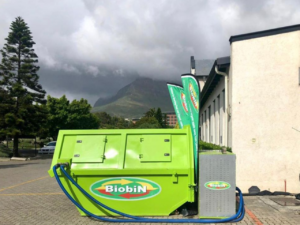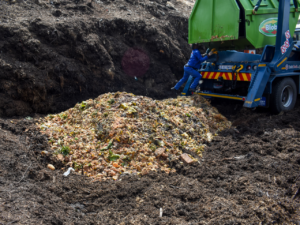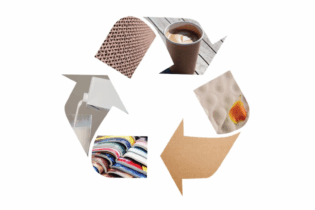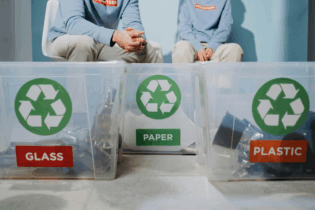Traditionally, recycling has been easily associated with materials like plastic, paper, glass, and metal. However, ‘organic waste’ and ‘recycling’ and are less likely to be used in the same sentence. As we celebrate National Recycling Week in South Africa, we need to include food and organic waste in the conversation as a fully recyclable waste stream. With the right technology and infrastructure, such as on-site composting units, organic and food waste can be repurposed into a highly economically viable secondary resource.
September marks International Clean-up and Recycling Month, a national initiative dedicated to keeping our environment clean. “While this is an excellent opportunity to educate the public about recycling, we also need to highlight the value of repurposing food and organic waste,” says Brian Küsel, director of BiobiN South Africa. “By recycling this waste stream, we are preventing environmental impacts at the landfill stage, we reduce our carbon footprint, and create a secondary resource” To ensure the value of recycling, separation at source is crucial. This means establishing dedicated disposal systems for different types of waste. By separating waste at the point of generation, recycling becomes more efficient and increases the value of recycled materials. Learn more about the different types of waste in this video:In commercial settings, where waste streams are often highly mixed, solid recyclable material (plastic, glass and metals) may lose value or be rejected altogether if it is mixed with organic waste, resulting in more waste sent to landfill. Mixed waste typically requires mechanical separation and washing, where recyclable materials must be sorted, cleaned, and categorised. Proper separation at source not only enhances the value of recyclables but also reduces resource costs, conserves water and minimises landfill volumes.
“One growing waste stream is biodegradable materials, largely driven by the rise in consumer preferences towards eco-friendly products and packaging,” says Küsel. “However, biodegradable products only benefit the environment if they are composted or transformed into secondary resources.”
 International Coastal Clean-up Day coming up on Saturday, 21 September highlights the scale of plastic waste, with plastic straws being one of the most frequently collected items. Estimates suggest up to 8.3 billion plastic straws are floating in the world’s oceans. Increased awareness around plastic waste has prompted a shift toward compostable alternatives. Advances in composting technology now make it possible to process large volumes of organic and food waste without odour, Küsel explains.
“Many of our retail clients, who generate significant amounts of organic waste, are using BiobiN units to convert this waste into compost. For businesses with smaller volumes of organic waste, we recently introduced a mobile composting unit, offering a highly versatile solution.”
To find out more, visit www.biobin.co.za
International Coastal Clean-up Day coming up on Saturday, 21 September highlights the scale of plastic waste, with plastic straws being one of the most frequently collected items. Estimates suggest up to 8.3 billion plastic straws are floating in the world’s oceans. Increased awareness around plastic waste has prompted a shift toward compostable alternatives. Advances in composting technology now make it possible to process large volumes of organic and food waste without odour, Küsel explains.
“Many of our retail clients, who generate significant amounts of organic waste, are using BiobiN units to convert this waste into compost. For businesses with smaller volumes of organic waste, we recently introduced a mobile composting unit, offering a highly versatile solution.”
To find out more, visit www.biobin.co.za







